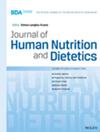The Organic Halo Effect: Perceived Caloric Disparities in High- and Low-Calorie Foods and the Role of Nutrition Label Reading Frequency
Abstract
Background
This study examines the organic halo effect, specifically how organic labels influence perceptions of caloric content and consumption recommendations for high and low calorie food items. Previous research suggests that organic labels can create a perception of healthiness, but it is unclear how these perceptions vary with food calorie content.
Methods
An online experiment was conducted with 198 participants, who were randomly assigned to evaluate 20 food items (10 high-calorie and 10 low-calorie) labelled as either organic or conventional. Participants rated the calorie content and recommended consumption frequency of each item using Likert scales. The analysis included multilevel regression models to account for nested data and interactions between labels, calorie content, and participants' propensity to read nutrition information.
Results
The organic label led to a significant underestimation of calorie content for high-calorie items and an overestimation for low-calorie items. Participants who frequently read nutritional information were more sensitive to the organic label, showing a stronger organic halo effect. Consumption frequency recommendations were influenced by the label only for low-calorie items, with conventional items being recommended more frequently.
Discussion
The study shows that the organic halo effect is more pronounced for high-calorie foods, leading to an underestimation of their calorie content, which may result in occasional overconsumption. Frequent readers of nutritional information are more susceptible to the organic halo effect, contradicting previous findings. The dissociation between calorie perception and consumption frequency highlights the need for clearer nutritional labelling to mitigate misperceptions and support healthier consumer choices. Further research with larger samples and real-world settings is recommended to validate these findings.


 求助内容:
求助内容: 应助结果提醒方式:
应助结果提醒方式:


